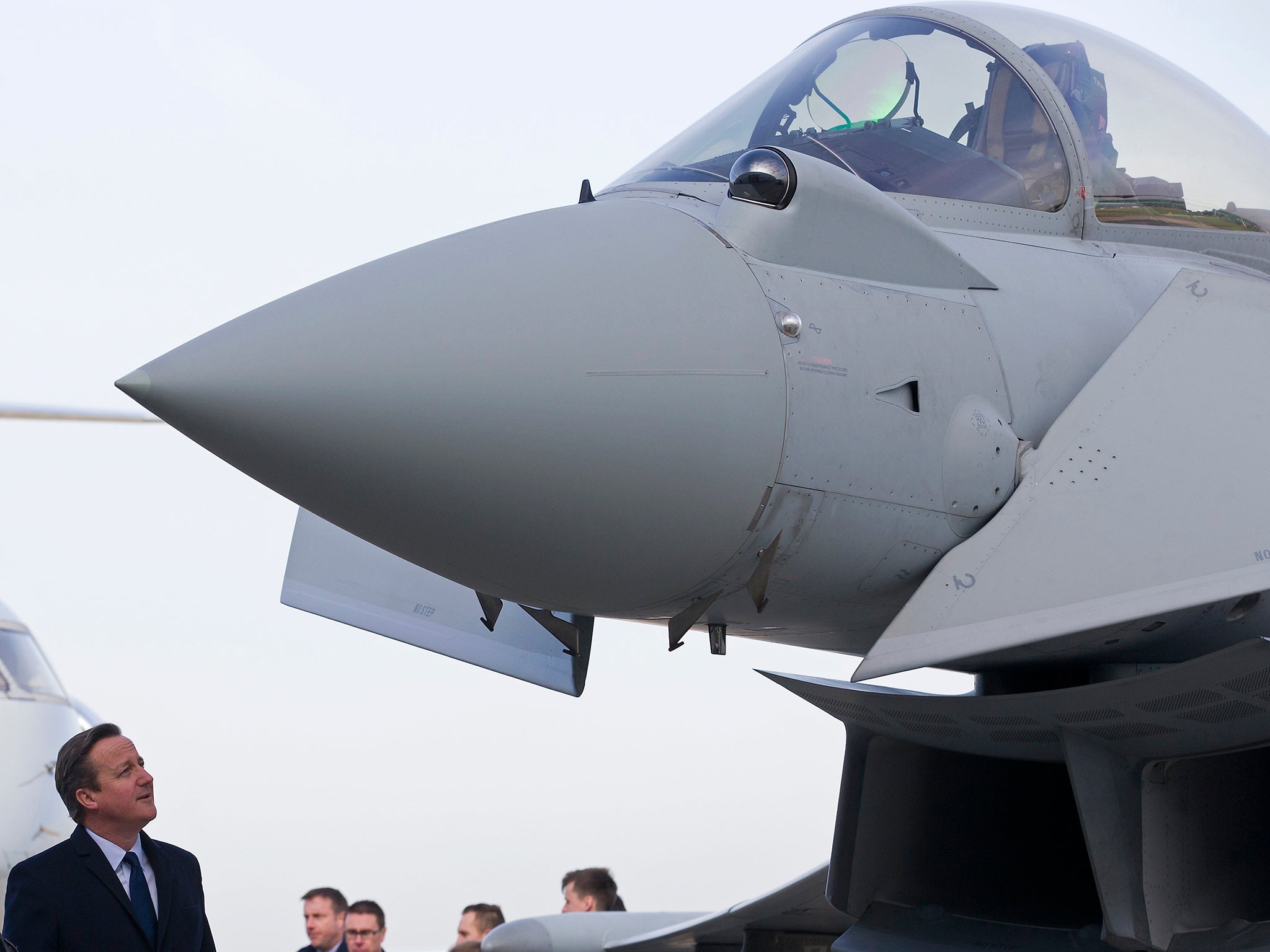British air strikes on Isis: Why has the promised quarterly update failed to materialise Prime Minister?
It is almost as if David Cameron did not take seriously the principle of accountability for the use of military force abroad

The Independent on Sunday opposed the decision to extend British air strikes against Islamic State from Iraq to Syria in December. We did not disagree with the principle of using military force to try to defeat the monstrous cultists of death and violence, but we felt that the case for an additional British contribution had not been made.
Nor did we question the Prime Minister’s good faith. We accepted that his arguments for this small extension of the British role in the region were sincere and well intentioned. In particular, we were reassured by the undertaking in the Government’s motion, carried by the House of Commons, to keep the country updated on the progress of British military engagement.
However, we report today that the quarterly update promised by David Cameron has failed to materialise. Downing Street claims that the Foreign Secretary and the International Development Secretary have kept MPs informed, but they have done so in general terms. Meanwhile, the Government insists there have been no civilian casualties as a result of British air strikes. This seems implausible. The non-government organisation Airwars, collating open-source information, suggests that the civilian death toll from all coalition strikes, mostly carried out by the US air force, is close to 1,000. It is almost as if Mr Cameron did not take seriously the principle of accountability to the House of Commons for the use of British military force abroad.
In addition to his casual approach to a solemn commitment to the House, his Government has been evasive about the use of drones. Michael Fallon, the Defence Secretary, has suggested that the convention that MPs must approve military action does not apply to drones. He has also refused to say whether British drones might be used in Libya.
Mr Cameron has also disappointed on rendition and torture. Having shown willing, as a new Prime Minister, to get to the bottom of the involvement of the previous government in some of the darker corners of the US-led “war on terror”, he is now falling short. As we report today, the Foreign Office is obstructing the publication of documents under US freedom of information law. Nine documents, which shed light on discussions of the treatment of Guantanamo detainees, have been withheld.
How different things seemed in 2010, when the new coalition government launched a “short and sharp” inquiry, under Sir Peter Gibson, a retired appeal court judge, to look into British involvement in rendition and torture. The inquiry was suspended in 2012 and then wound up because legal cases prevented a thorough investigation. Sir Peter eventually published a report, in 2013, but it had a number of omissions. Meanwhile, confidence in government assertions of clean-handedness was further undermined by the apparent “smoking gun” that emerged in the case of Abdelhakim Belhadj, whose rendering to Libya, seemingly under Tony Blair’s “deal in the desert” with Muammar Gaddafi, was described by an MI6 official as “the least we could do”.
After the Gibson inquiry was suspended, the Government said it still intended to hold a judge-led inquiry, once the court cases allowed. But the Prime Minister instead passed responsibility to the Intelligence and Security Committee, a committee of MPs whom he appoints.
Dominic Grieve, the former Attorney General who chairs the committee, is an MP of notable integrity, but we must doubt that he has the forcefulness and power needed to hold the Government to account on such an important issue. We look to him to prove us wrong.
The Prime Minister’s commitment to openness and accountability in defence matters has failed to live up to his brave and impressive words.
Join our commenting forum
Join thought-provoking conversations, follow other Independent readers and see their replies
Comments
Bookmark popover
Removed from bookmarks